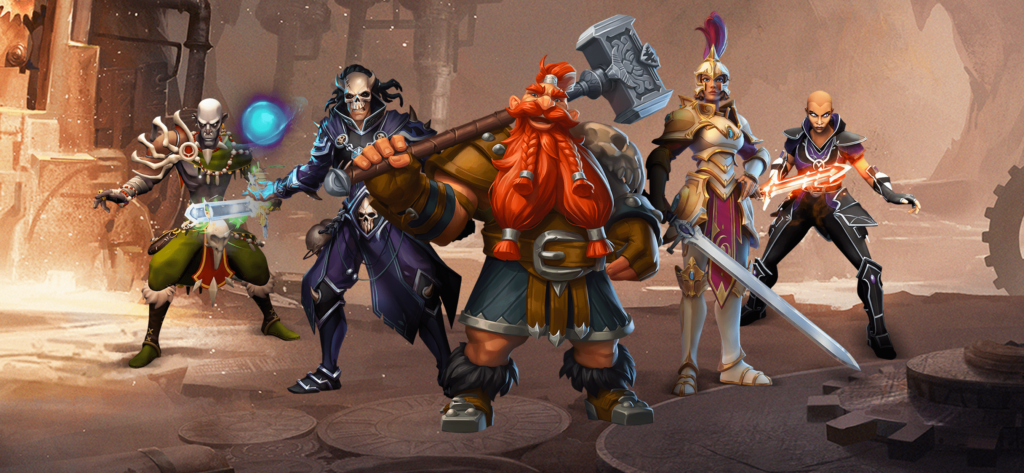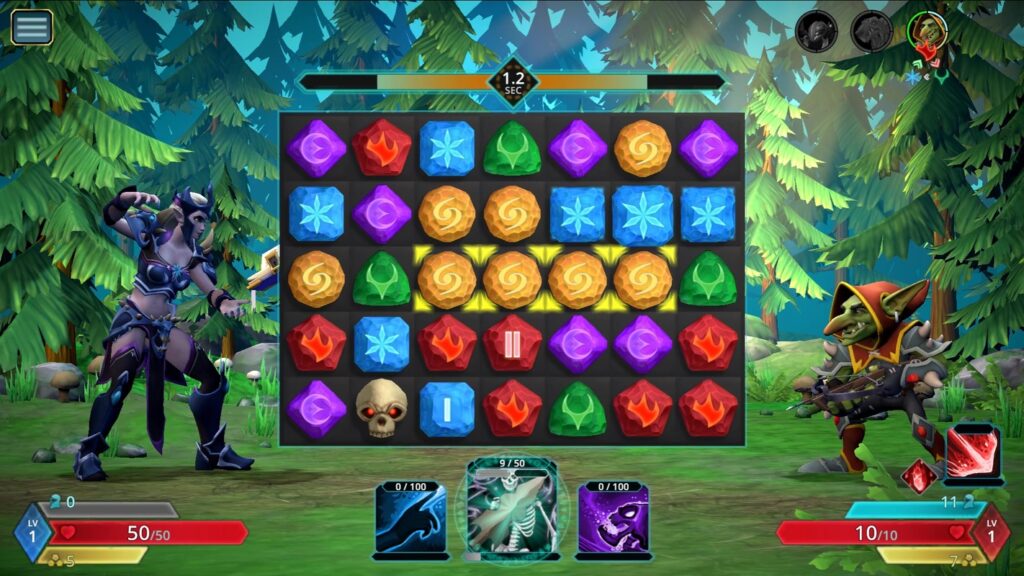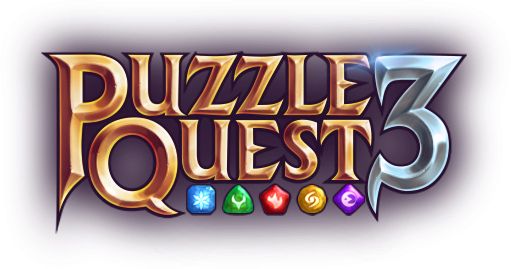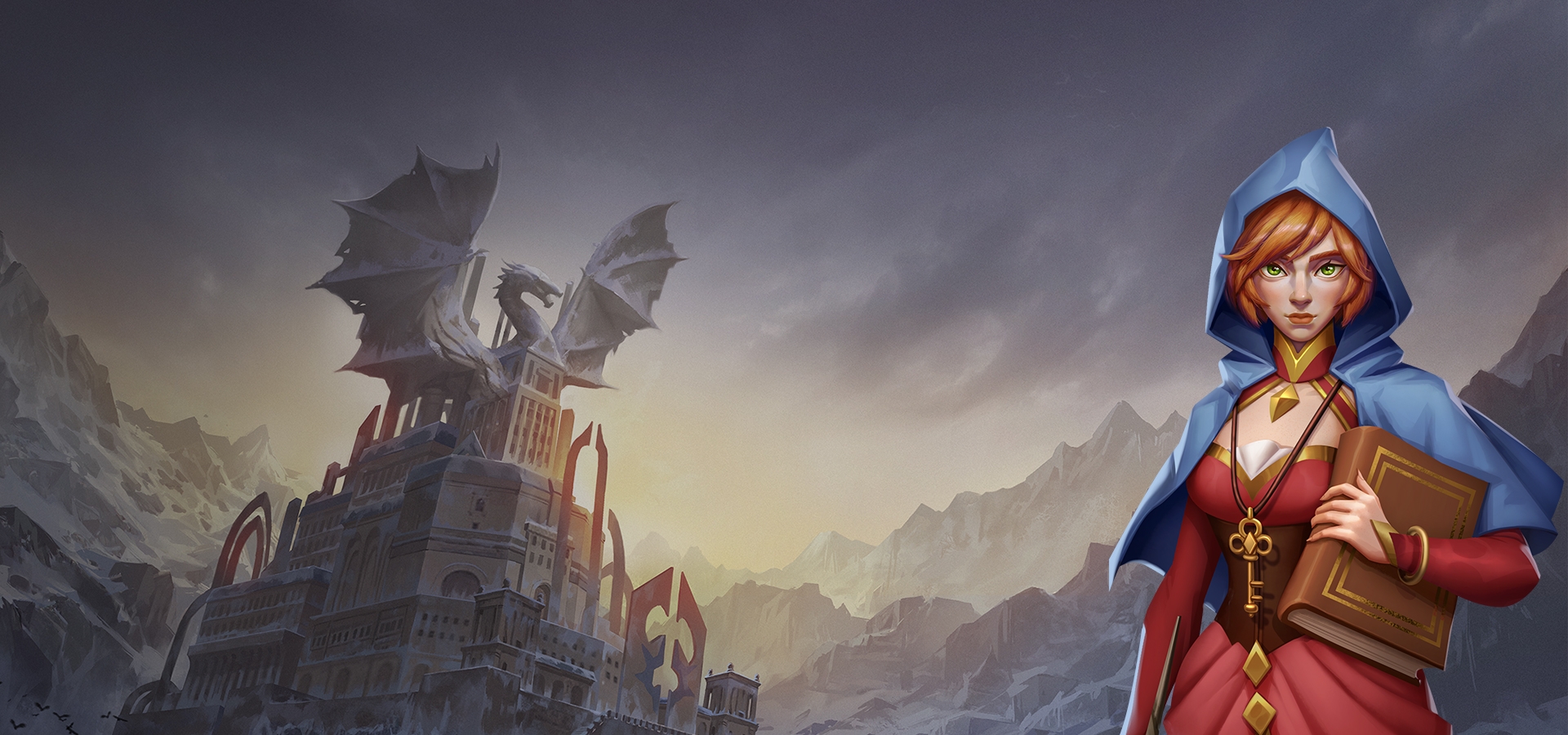Games are complex, multi-faceted discipline, and making them can often feel like herding cats. This means every studio can benefit greatly from having an in-house cat wrangler, also known as a Producer, to keep everyone working efficiently and to ensure milestones and deadlines are met. Sorcha stepped into the role of producer for Puzzle Quest 3, and we sat down to discuss what it was like producing for Puzzle Quest 3.

What made you want to be a producer?
Sorcha: I’ve found myself leaning towards leadership roles throughout my career. There’s something thrilling about defining a vision and supporting everyone to get there. After initially considering film direction I decided it was definitely not for me! I fell into video games – a much more prominent part of my life than film. Production was a natural progression from my time in support and community management. It’s the best combination of creative collaboration! I saw it as a role that blended everything I wanted to do.

(Early in the development for Puzzle Quest 3 Sorcha was hard at work planning and putting together asset lists for our both our playable heroes and dangerous foes.)
How is producing for games unique?
Sorcha: It’s unique because every producer is different and requires a different approach depending on the team and project. Production for games is a special combination of creative skills or outlook (depending on the project), project management methods and film production techniques. Where a film producer might see a project start to end with a set method, in live service game development there are various disciplines working at different stages of production. There isn’t a linear method of doing things. There are also so many more disciplines collaborating – all at once! – so you need a good understanding of how everything works before you can bring it all together.

(Not only did Sorcha implement new development processes and streamline them, she was also in charge of making sure our team was aligned and working towards the same vision. Producers collaborate across all disciplines, and Sorcha was no exception.)
What challenges did you face producing on PQ3?
Sorcha: Well, the whole Covid-19 thing happened. Moving everybody to remote work during our main development timeline was a bit of a spanner in the works. This created a need to adapt communication more individually to everyone and work out new structures for information flow. We spent a lot of time making sure there was remote visibility and replicating spaces for people to have conversations that might have happened in person. This really made us consider what is important to share and our rituals for meeting as a team! In the end, I think it’s made us more adaptable, and I’m glad it’s given the team the flexibility to do their jobs based on their lifestyle.
What advice do you have for other budding producers?
Sorcha: As production roles different from game to game and studio to studio, there’s no one-size-fits-all method for doing… anything!. Roles and responsibilities will change depending on the team, too. Instead of trying to be every type of producer, learn the core skills of production and adopt a mindset of adaptability and open-mindedness. Any type of producer will have emotional maturity, a foundation of project management skills, the ability to adapt communications, a flair for organization and the ability to think creatively. From there, it’s a matter of learning different methods…retrospectives, different ways to track tasks or features, a new meeting format, a particular process for keeping things running smoothly, a certain way to make an asset sheet. All of these things are great to know, but what you need is unique to the team and the problem you’re trying to solve.All you can do is learn from your experiences and build your toolbox of methods so you can draw from it as-needed.

Over time, our developers will be writing blogs that explore different parts of Puzzle Quest 3.

